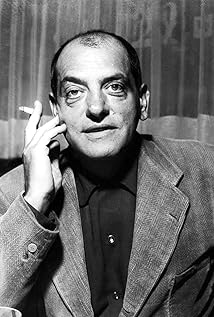
Clips from That Obscure Object of Desire
That Obscure Object of Desire is a story of a middle-aged man who falls for a young chambermaid Rothman states that the film was: 'Adapted from the Pierre Louÿs novel on which Josef von Sternberg based The Devil is a Woman four decades earlier, That Obscure Object of Desire tells the story of Mathieu, an aging aristocrat, who pursues the young Conchita through a series of amorous encounters in which she arouses his desire but denies his sexual satisfaction.' (Rothamn W. 19/11/2001). The main character is played by two different actresses this was due to the fact that the original actress proved unsuitable so Bunuel replaced her with two actresses instead as an artistic device (two sides of the same person). This film deals with the man's sexual obsession in a backdrop of terrorism 'Few other directors would dare to equate the male libido with international terrorism, but the final feature by master surrealist Luis Buñuel is a dark comic web of sexual obsession' (mjneu59 07/01/2011).
Why am I writing about Bunuel if my project is on a diary you may ask, well the answer is that as Bunuel was the master of surrealism and used so many different sources of reference and seemly random scenes in his films that I felt this is more towards what my 'diary' should be - if it ends up being a diary at all. As I have been writing I have been considering not just the films of Bunuel but how Bunuel came to his ideas in a New York Times Interview he states when describing how the genesis of his films: “I start from nothing,” he said. He looked around him. “A man throws this"—he picked up a butt‐filled ashtray — “out the window.” He restrained the impulse; this was a metaphorical discussion. “One image, never a general concept. Little by little I have 20 ideas.” (Gussow M. 03/11/1972) Bunuel goes onto say: 'In creating the script, he said, “there is never logical thought. It is always rather irrational. Images appear. Some I refuse.”'(Gussow M. 03/11/1972). I think this is important as people like to think they are logical I recall often arguments I have had where people either state that they are being logical or you are being illogical. The fact is as humans, I believe, most of the time, we are illogical and writing in the form of a diary is idiosyncratic and also allows for freeform thought. This idea I like and that is why what is important here about Bunuel is his ideas and how he came to them - or I should say how they came to him. Many of Bunuel's ideas did come in dreams and in his book 'My Last Sigh' (Bunuel L. 1994) Bunuel discusses his life and he also discusses at length his dreams and how often ideas had come to him in dreams. In fact, though Bunuel does not discuss in his book that much about his films and as Long states: 'the details are scant in each case. "It would be absurd to list and evaluate all these movies", he writes, "in the first place because that's not my job, and in the second because I don't think life can be confused with a work". ' (Long H.H 07/02/2005). Life and living were more important but like all artists I suspect he needed his work to live and without it, he may have been lost.
Following looking at Bunuel I want to develop my work further by considering perhaps another form and format for the words that I have been writing - perhaps it is only images I really want....for the image can be everything.
References
Bunuel L. (1994) My Last Sigh. Vintage Classics.
IMDb (1990-2020) Luis Buñuel [Online] Available from: https://www.imdb.com/name/nm0000320/
(Accessed 01/02/20)
Gussow M (03/11/1972) New York Times: No Symbols in His Films, Bunuel Says [Online] Available from: https://www.nytimes.com/1972/11/03/archives/no-symbols-in-his-films-bunuel-says.html (Accessed 01/02/2020)
Long H.H (07/02/2005) Pop Matters: My Last Sigh by Luis Bunuel [Online] Available From: https://www.popmatters.com/my-last-sigh-2496243613.html (Accessed 01/02/2020)
No comments:
Post a Comment